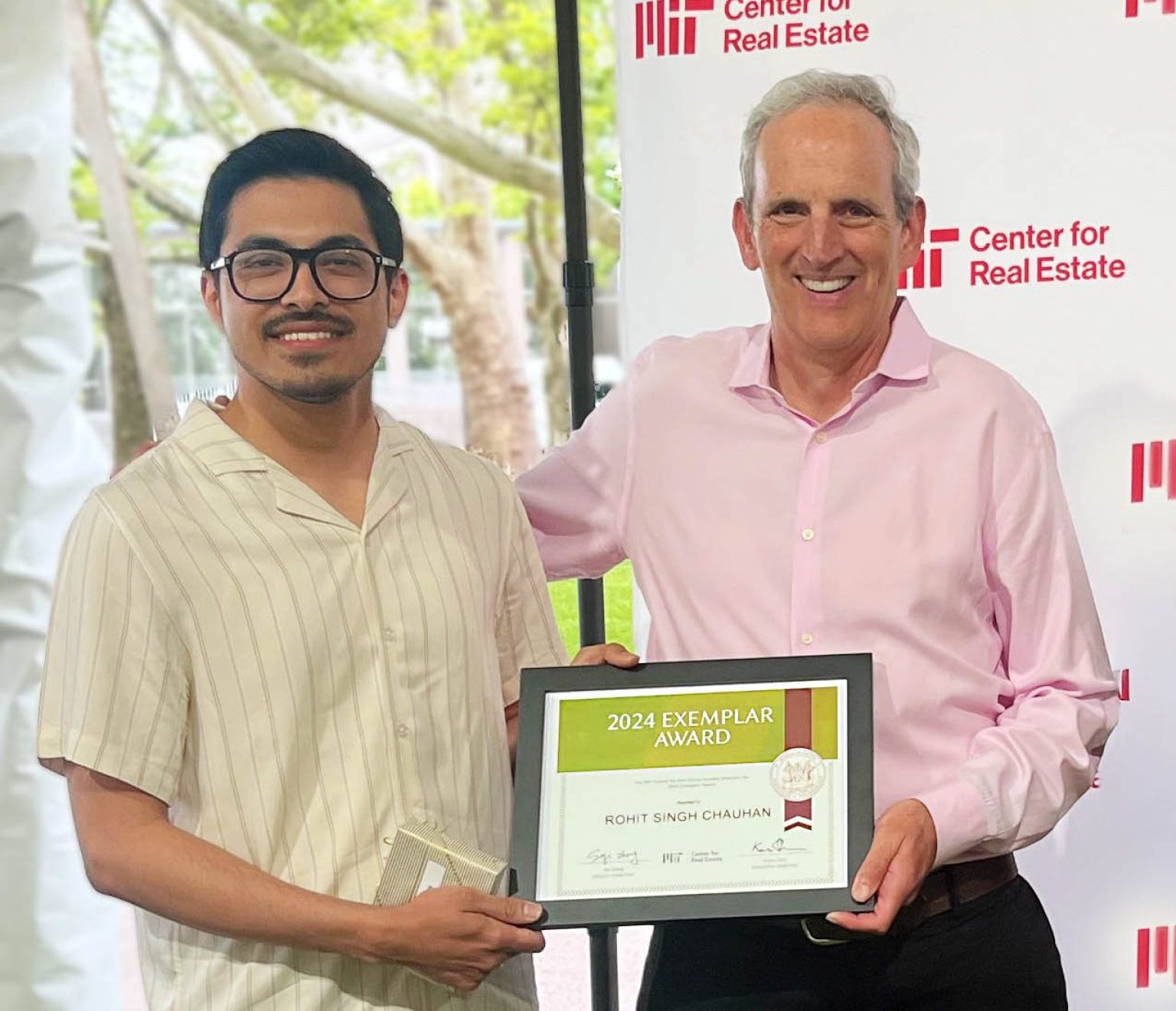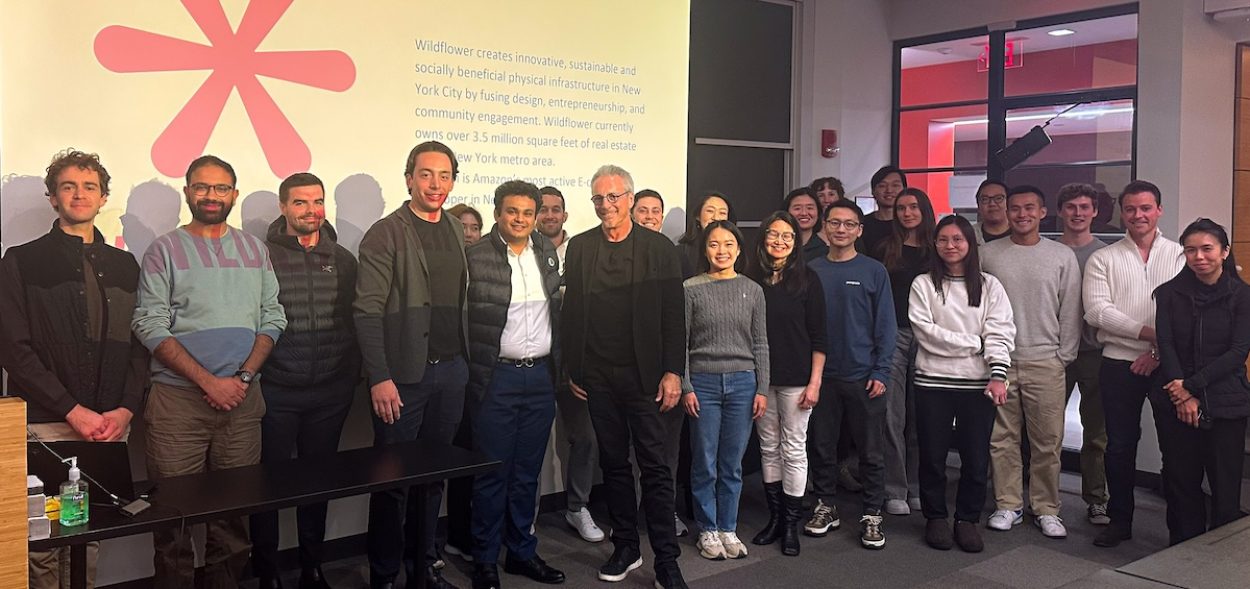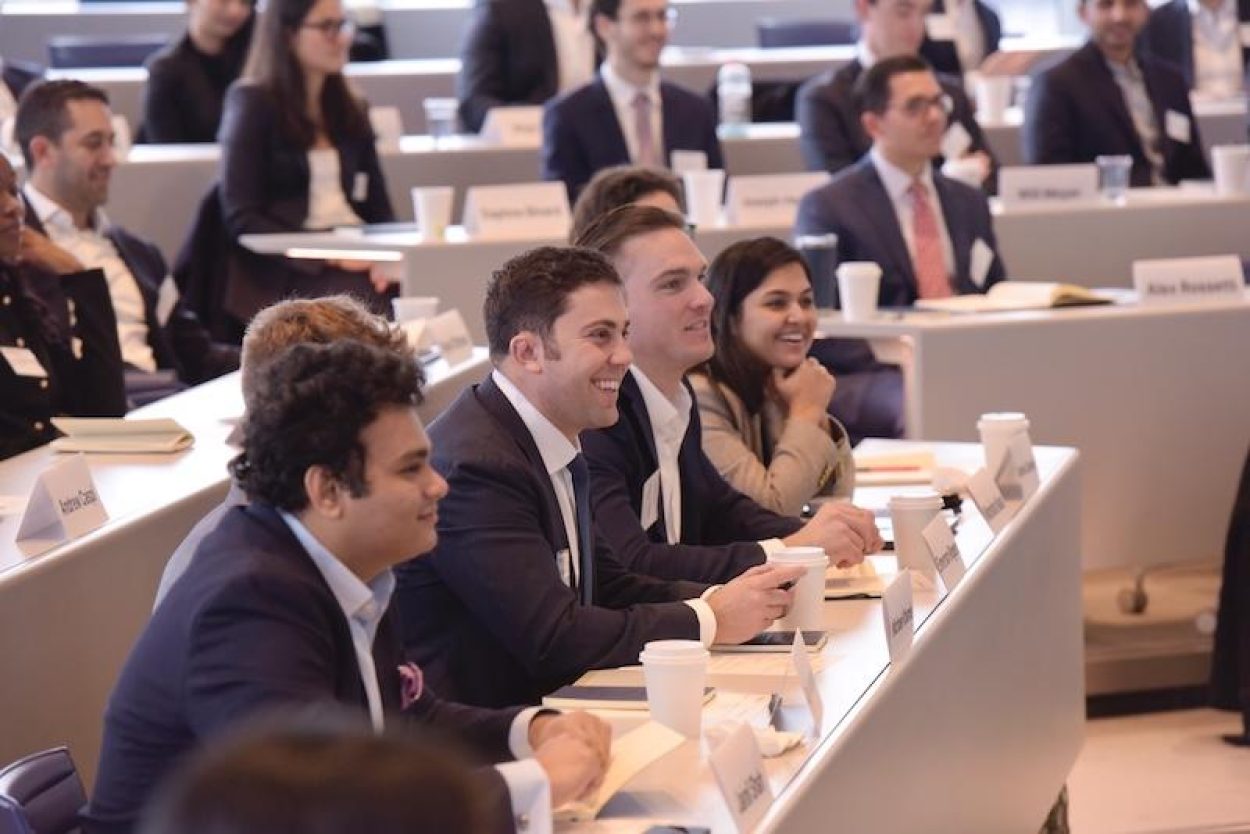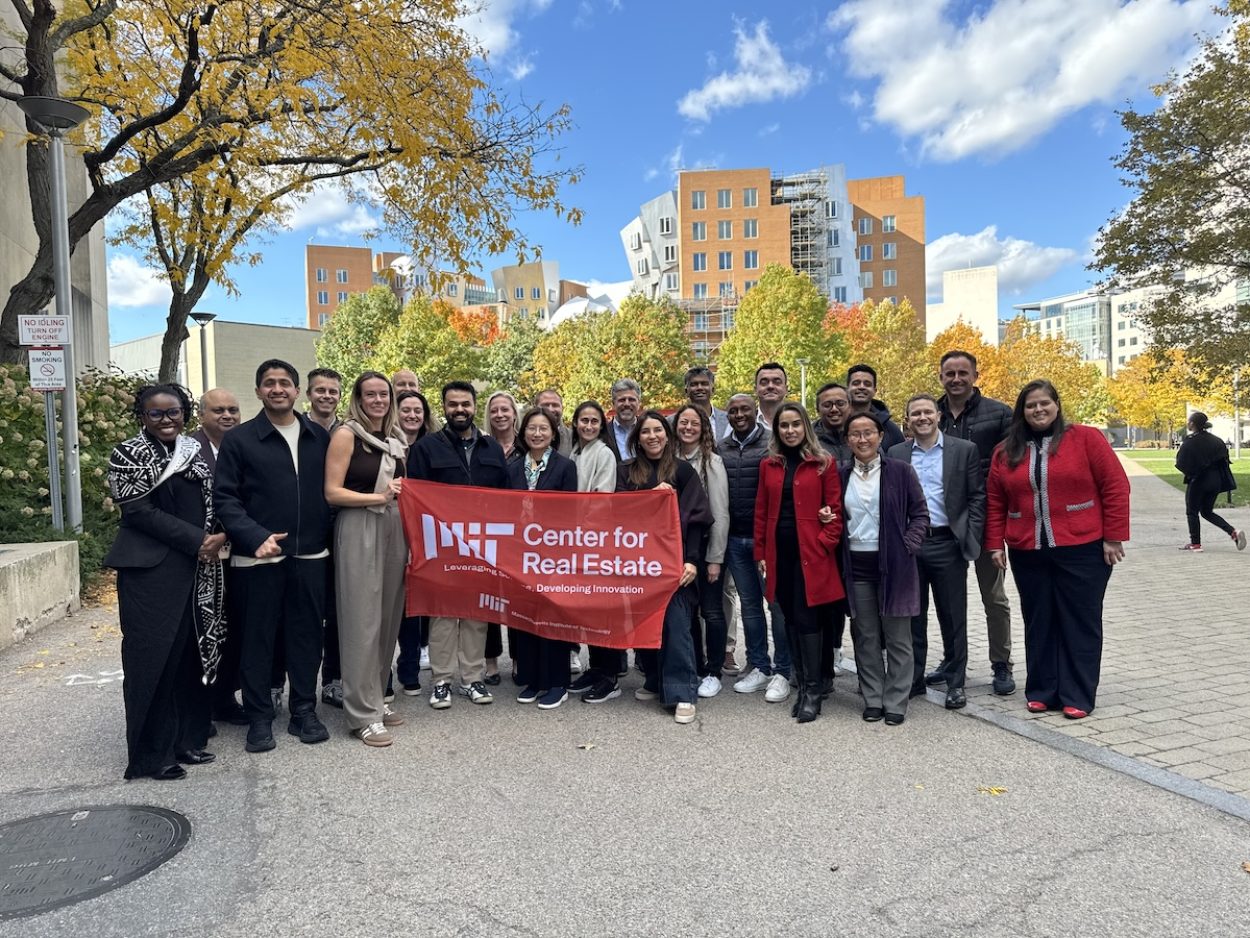Rohit Chauhan MSRED ’24 hails from Bhopal, the “City of Lakes” in central India. With a background in architecture and a passion for shaping spaces, Rohit’s path has taken him from consulting on large-scale commercial and hospitality projects in India and Qatar to pursuing a Master of Science in Real Estate Development (MSRED) at MIT’s Center for Real Estate (MIT/CRE). He received the Center’s 2024 Exemplar Award in recognition of his academic achievements and marked professionalism throughout his time on campus. Now a recent graduate, he is an Acquisition and Development Associate at Tishman Speyer in Boston, working on transformative urban projects while always seeking new opportunities to learn and grow in the industry.
From Design to Development: A Shift in Perspective
Rohit began his academic journey with an undergraduate degree in architecture, which led to consulting on commercial real estate projects across India and the Middle East. However, he realized he wanted a more active role in shaping projects from the ground up.
This realization led him to shift to the client side, joining a major residential developer in India as a design manager. While the experience was enriching, Rohit soon understood that to have a real seat at the decision-making table, he needed more than design expertise.
“I needed formal training in real estate finance, economics, law, and other aspects of the industry to complement my design background,” he says.
Building relationships during your coursework is just as important as excelling in the classroom.”
Rohit Chauhan MSRED ’24
Finding His Place at MIT
MIT’s MSRED program was a natural next step for Rohit, and he carefully evaluated how it aligned with his career goals. The program, he found, offered “a great balance of core curriculum to build my foundation with ample flexibility to pursue other areas that interest me.” He was also drawn to the research opportunities in the Sustainability and Proptech spaces.
“The Real Estate Transformation and Sustainable Urbanization Labs were key in my decision,” he recalls. “MIT’s research ecosystem is unmatched, and I knew the connections I’d make there would be invaluable.”
Beyond academics, MIT’s alumni network and sense of community were major factors in his decision to apply.
“The legacy of MIT/CRE, combined with its exceptional faculty and alumni, made it the perfect place for me to grow both personally and professionally.”
A Journey Defined by Relationships
For Rohit, the MSRED experience wasn’t just about acquiring knowledge—it was also about building relationships. Firstly, the diversity of the MSRED cohort played a significant role in helping him understand his unique strengths as a professional. Students come from a variety of geographies and career trajectories.
“The interplay of different cultural and professional experiences in a collaborative learning environment contributed to our holistic development,” Rohit says. “Post-graduation, I continue to cherish those connections and shared experiences.”
Secondly, the faculty’s shared commitment to supporting students in and out of the classroom stood out to Rohit. His academic and thesis advisor, James Scott, provided mentorship that proved instrumental in navigating the complexities of the program.
“He was more than just an advisor,” Rohit says. “James offered career advice, industry insights, and a fresh perspective on approaching challenges. His mentorship really grounded me in the program.”
Connecting with alumni was equally important. As an international student navigating the U.S. real estate market for the first time, “Talking to alumni gave me insights into the U.S. market that were new to me,” he explains.
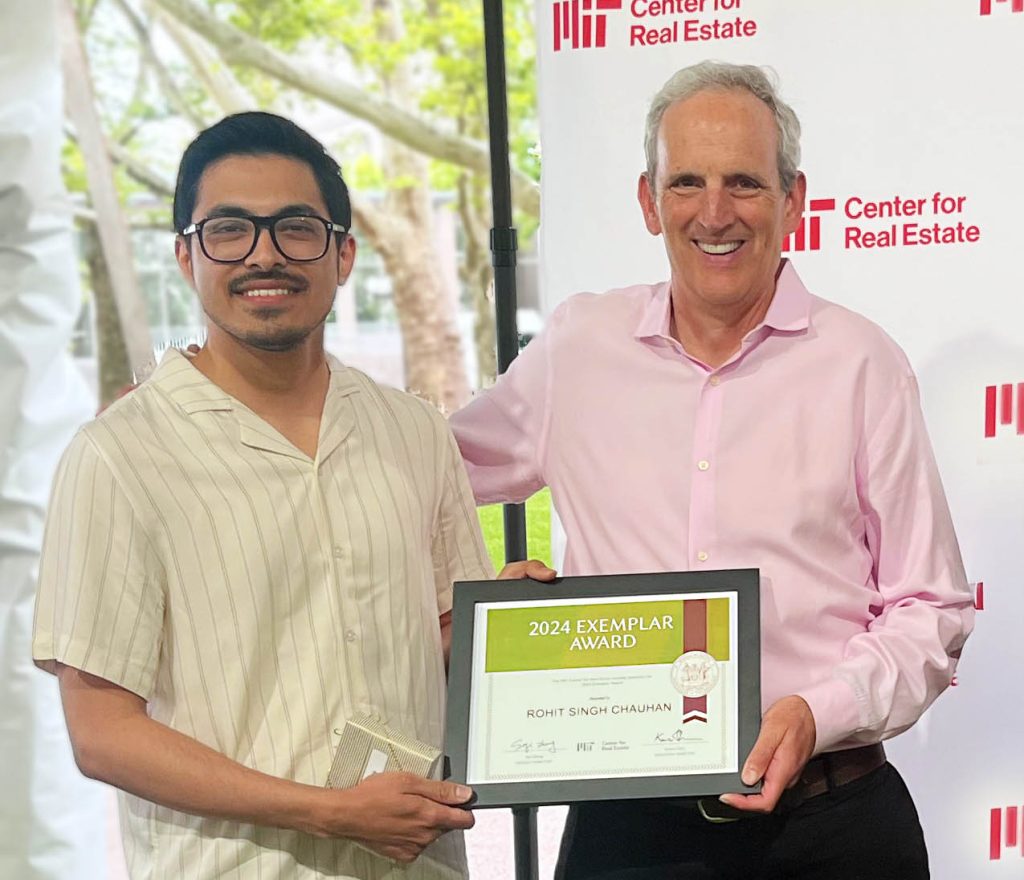
From Classroom to Career: Landing the Role at Tishman Speyer
A pivotal moment in Rohit’s post-MIT career came during the Real Estate Development Studio course, an intensive, semester-long deep dive into real estate development. His team worked on a proposal for a site in Boston that happened to align with a live development project by Tishman Speyer, a leading player in the global real estate market.
“We presented our final project to a panel of industry experts which included Jessica Hughes, the regional manager for Tishman Speyer in Boston,” Rohit recalls.
His work and presentation made a strong impression, leading to a connection that would eventually land him his current role. Rohit stayed in touch, attending industry events and keeping the conversation going. A few months later, when Tishman Speyer was looking to expand its development team, Jessica recommended Rohit for the team’s consideration.
“I always tell current and prospective students that building relationships during your coursework is just as important as excelling in the classroom,” he says. “In my case, the opportunity at Tishman Speyer wouldn’t have materialized without both the platform to showcase my work and the confidence and support I received from Jess.”
Each market presents unique challenges, and I want to tackle those while continuing to make an impact on the communities I serve.”
Rohit Chauhan MSRED ’24
Building for the Future
Today, Rohit is part of the team working on the Enterprise Research Campus (ERC) in Allston, MA—a massive mixed-use development that will transform an underutilized site into a hub for innovation and creativity. The project includes lab spaces, residential buildings, a hotel, an all-timber conference center, and ample public green space. It also sets new benchmarks within the city for affordability and DEI (diversity, equity, inclusion) commitments for a development of its size.
“It’s an incredibly exciting project,” Rohit says. “I’m fortunate to be involved in such a transformative development that aligns with my values and career goals.”
As an Acquisition and Development Associate, Rohit engages in nearly every aspect of the project, from early conceptualization to on-the-ground construction administration. He also works with Chris Whittier MSRED ’19, who is a Senior Director at Tishman Speyer and the project manager for the ERC.
Rohit is excited about future projects with Tishman Speyer, where he hopes to take on more senior roles in time. His passion for mixed-use developments, which create vibrant communities integrating residential, commercial, and public spaces, continues to drive him.
“These projects don’t just create buildings; they create opportunities for connection, creativity, and community growth,” he says.
While Boston is currently home, Rohit remains open to exploring opportunities in other regions.
“Immersing myself in different markets is something I’m open to in the long term,” he says. “Each market presents unique challenges, and I want to tackle those while continuing to make an impact on the communities I serve.”
For Rohit, the journey from architecture in Bhopal to real estate development in Boston has been one of continuous learning, growth, and building connections. As he looks ahead, he’s equipped with a strong foundation, ready to reach new heights.
